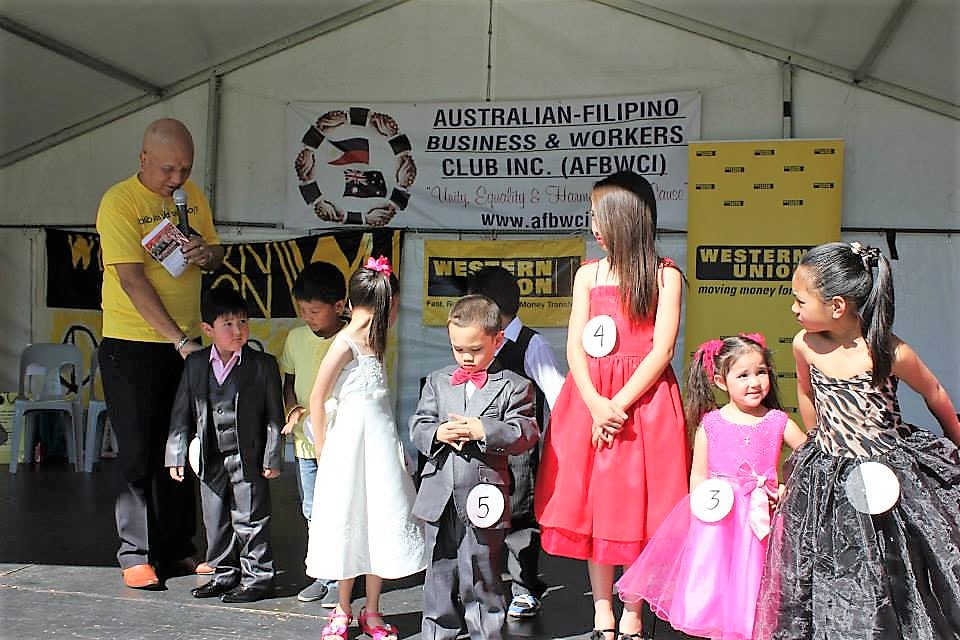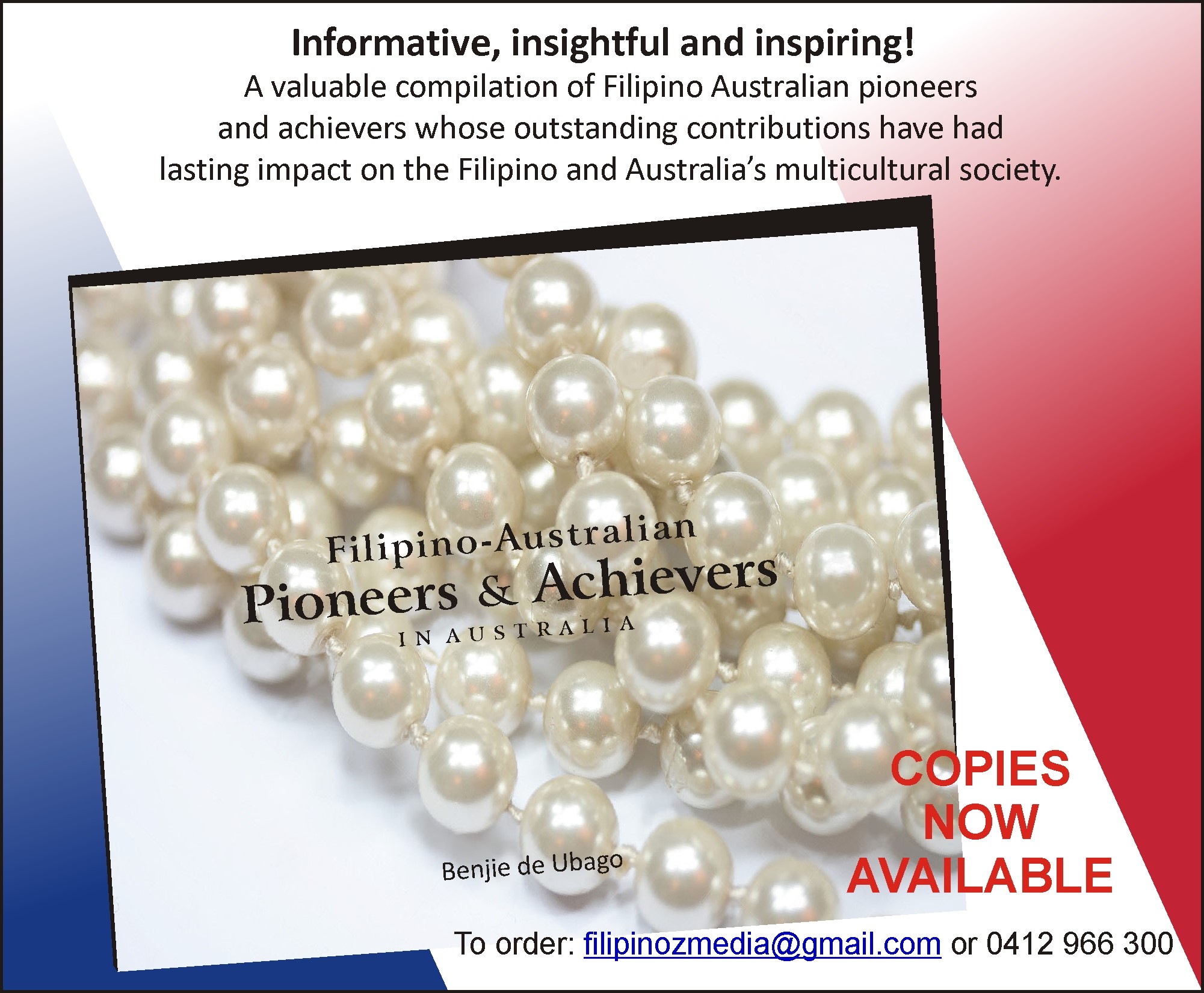BY RONALD MANILA
It is pathetic and pretentious to consider our kids Filipinos here in Australia.
Many of us especially immigrant parents are still trapped in false sense of nationalism by telling our kids that they are Filipinos. I tend to fall in that trap too, .but every time I do, I slap my face and tell myself get real.
I feel like betraying my three daughters if I raise them as Filipinos. Unless I let them live and grow in the Philippines, they can – and shall – never be Filipinos.
If I wanted them to become Filipinos, I should have raised them in the Philippines. For they cannot live like true Filipinos if they are 10,000 miles afar from the country which could have been their home had not for the caprices of their parents, who supposedly in search for better life, brought them to Australia. Its unfair for Filipinos living in the Philippines and the Australians here in Australia. They cannot have the best of two worlds.
Our kids are no longer Filipinos – despite their brown skin, black hair and small built body, They are Australians or more specifically Filipino Australians. To falsely label our children Filipinos is a rob of their identity as Australian or Filipino Australians.
To teach children in Australia that they are Filipinos is to tell them that Australia is White Australian or European Australian, or Asian-Australian – not a multicultural Australia,
Australia today is not the white Australia of the early 60s were even Aboriginal Australians were not counted as citizens. If we continue to consider our kids Filipinos, the more it will be convenient for white Australia to marginalise Filipino-Australians. Young Filipino Australians today should assimilate in the a mainstream Australian society. As long as we don’t integrate our children in the mainstream Australia, we can never earn the respect we want for our children as true Australians. We simply encourage the multiplication of racial hatred and bigotry.
By any means, we can in fact-, should encourage to – teach our kids to speak Tagalog, Bisaya, Bikol, Kapampangan, Ilocano or any other dialect, not because they are Filipinos, but because it helps them to learn another language, We can still tell them to address their elders with courteous salutations or ate or kuya; or say po or opo ;or for them to to mano, as this is part of the goodness of Filipino culture. On the other hand, we should still never allow them to practice Australian culture which we perceive as totally not acceptable like kissing on the middle of the street. A blend of proper Australian and Filipino culture can make them a well balanced., dignified individuals. Our children can contribute to the cultural growth of Australia.
Lie Australia, the Philippines today is a result of mx culture – Spanish, Malay, Arab, ethnic Japanese and American. Our Filipino traditions and culture are basically inherited from these varied cultures et we don’t call them Spanish or Chinese – we call them Filipino. Sio pao is definitely Chinese yet we consider it a Filipino delicacy, merienda is Spanish yet it is Filipino. The :5-6” loan was started by the Bombays of Paco, yet it is now a Filipino practice.
In the U.S.. the Filipino culture has made the American way of life richer and more varied. Even in the Webster dictionary, boondock which means a remote area is derived from bundok. Filipinos have made significant contributions in other areas of American life.
In Australia, other ethnic cultures have already made indelible mark in the cultural practice of the people. Ciao, mana are some f the foreign words that are slowly gaining recognition in the Australian jargon. It will take time, perhaps a generation for Filipino words to be a part of Australian lingo. Hopefully, erap may be accepted as a bloke. Despite many perceived imperfections of Filipino cultures, we as a cultural group, have many good practices to offer to Australia. In fact it is slowly showing faces in some areas. Every year the traditional Christmas lantern festival in Plumpton, NSW has grown, drawing more and more people. Many streets in Blacktown are already named after place in the Philippines. I feel great that even my beloved surname -Manila -is immortalised in one of Blacktown’s quiet streets. Hopefully, the nine-day simbang gabi novena and the All Souls Day tradition of visiting our departed ones in the cemetery and other similar practices which can be truly identified as Filipino can find a place in Australian society. The perennial Filipino time – always late – which has irked other people in Filipino-Australian activities is one of the things we should not unwittingly promote. In some instances, the line that distinguished Australian and Filipino culture is imaginary – the Filipino ‘crab mentality’ is simply Australia’s “tall poppy; syndrome.
The influence or lack of Filipino culture in Australia is badly represented in a government sponsored multiculturalism exhibit I attended two years ago. In the exhibit, it displayed yo-yo and Kate Ceberano as the contributions of Filipino culture to Australia. That was quiet an insult to the Filipino-Australian community. Yet that was how mainstream Australia perceived our contribution to the society. Certainly there is more than to yo-yo and there are more promising Filipino-Australian talents than Kate.
The pretensions of many Filipino-Austrian is similar to that of Australians hating the American culture, yet patronising MacDonald’s, Target, K-Mart, Ford. Even the so-called Commodore and Falcon cultures is not Australian, yet we call them Australian icons.
For one it is difficult to be Australian. For more than thirty years of my life in the Philippines, the memories I left behind in the Philippines can never be taken from me notwithstanding better life in Australia. To consider myself Australian, at this time, is simply pretentious. I learn from my daughters the Australian way of life. They learn from me the Filipino way of life. Published in Bayanihan News September 2000









Leave a Reply